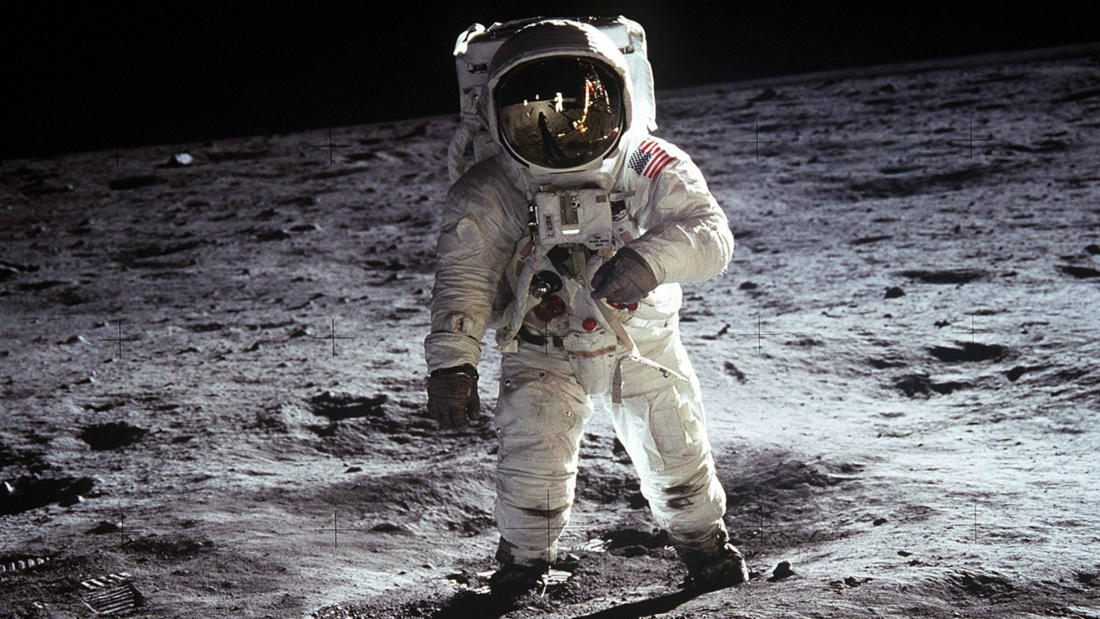
Belcourt Theatre Nashville, TN
Dr. Rhea Seddon
Former NASA Engineer
andCaptain Robert “Hoot” Gibson
Former NASA Engineer
andBrooks Moore
Former NASA Engineer
andAl Reisz
Former NASA Engineer
andDr. Tom Schwartz
Professor of History, Vanderbilt University
moderated byDr. Tracie Prater
Aerospace Engineer, NASA Marshall Spaceflight Center
For All Mankind— The Success of the Apollo Moon Mission
Program Description
The panel focused on the scientific and cultural context that made the Apollo mission a success and the key scientific benchmarks that led to the moon landing, the expected and unexpected challenges, and space exploration in the the post-Apollo era.
Presented At
Belcourt Theatre Nashville, TN
Film Synopsis
Al Reinert’s documentary is the story of the 24 men who traveled to the moon, told in their words, in their voices, using the images of their experiences.
Sorting through nearly one hundred hours of film and sound recordings recovered from NASA, director Al Reinert created this documentary on the Apollo program of the 1960s and '70s, commemorating man's landing on the moon. The film is a montage of images with voice-over interviews and commentary from the participating astronauts. Brian Eno, famous for his ethereal music, provides the score. For All Mankind was nominated for an Academy Award for Best Documentary in 1990.
About the Speaker
Dr. Margaret Rhea Seddon is a physician and retired NASA astronaut. After being selected as part of the first group of astronauts to include women, she flew on three Space Shuttle flights: as mission specialist for STS-51-D and STS-40, and as payload commander for STS-58. Both before and after her career in the astronaut program, she has been active in the medical community in Tennessee, Mississippi, and Texas.
Robert Lee "Hoot" Gibson (Capt, USN, Ret.), is a former American naval officer and aviator, test pilot, aeronautical engineer, and a retired NASA astronaut, as well as a professional pilot who currently races regularly at the annual Reno Air Races. In 2015 it was announced that Gibson would be the pilot of the P 51 "Strega" at the annual Reno event. In this plane, he would win the National Championship Air Races.
Brooks Moore, a graduate of Auburns’s College of Engineering, also received a master's degree in electrical engineering at Georgia Tech. He spent over 50 years in Huntsville, Alabama, working with the space industry. While at NASA, Brooks worked closely with Dr. Werner von Braun during the Apollo program that first landed men on the moon. Because of his work with NASA, the Army Missile Command, and private industry, Brooks received many special honors, including induction into the Alabama Engineering Hall of Fame and the Georgia Tech Hall of Fame. Brooks served many years on the Auburn Engineering Council and the Auburn Research Advisory Council.
Al Reisz served in the army before becoming a propulsion engineer with the Boeing Company in Huntsville, Alabama, working as the main contractor with NASA during the development and flights of the Saturn V rocket, the launch vehicle of the Apollo program that sent astronauts to the Moon. He began Reisz Engineering in 1974, and developed early large-scale solar energy systems used in processing soybeans into meal and oil during the OPEC oil embargo of the mid-1970s'. Working with NASA's Marshall Space Flight Center and the University of Michigan between 2005–2008, his firm developed the electron cyclotron resonance advanced propulsion system. In 2011, he received the Hermann Oberth award for outstanding achievement in astronautics.
Dr. Thomas Alan Schwartz is a historian of the foreign relations of the United States, with related interests in modern European history and the history of international relations. Professor Schwartz taught for five years at Harvard University, and has been teaching at Vanderbilt since 1990. While at Vanderbilt, he has developed courses dealing with the United States and the Vietnam War as well a course entitled, “Power and Diplomacy in the Modern Middle East.” He has held fellowships from the Social Science Research Council, the German Historical Society, the Norwegian Nobel Institute, the Woodrow Wilson International Center for Scholars, and the Center for the Study of European Integration. He has served as president of the Society of Historians of American Foreign Relations and on the US Department of State’s Historical Advisory Committee as the representative of the Organization of American Historians. In 2008, Professor Schwartz received the Annual Alumni Education Award from the Vanderbilt Alumni Association.
Dr. Tracie Prater is an aerospace engineer in materials and structures at the NASA Marshall Spaceflight Center in Huntsville, Alabama, and received her PhD in mechanical engineering from Vanderbilt in 2012.